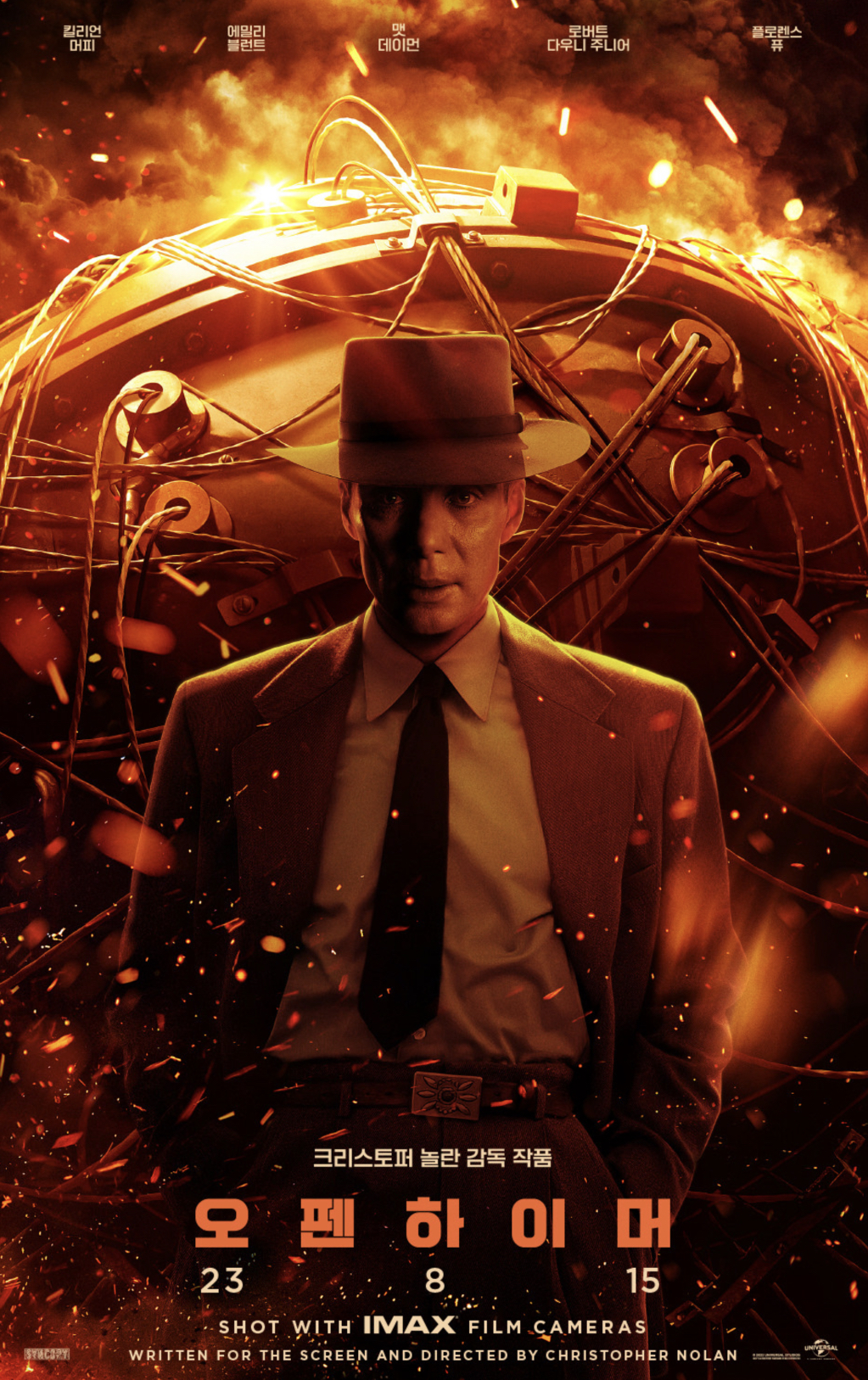Warning: This article contains spoilers for the movie Oppenheimer. The film is rated PG 15, so we advise younger readers to take caution.
This summer, Christopher Nolan dropped another cinematic masterpiece. A month after the premiere date, Oppenheimer surpassed all other Nolan’s films on Rotten Tomatoes and ranked first place at the box office, unleashing a torrent of debate among film connoisseurs. Compliments and critiques seeped through social media platforms, including my Instagram feed, which convinced me – along with my passion for war history – to finally hit the cinema.
Early in my childhood, my dad got me immersed in war history. In particular, I watched WW2 documentaries and movies like “Land of Mine” and “The Boy in the Striped Pajamas” time and time again.
I grew up in Denmark, a country invaded by the Germans during the war. I lived close to a bunker museum, which I visited often. A family member of mine even fought on the front lines at Stalingrad. This proximity implored me to always stay on top of new war movies, so when the news of “Oppenheimer” broke, I could barely contain myself. It was not a want, but a must. I immediately booked a ticket with a friend of mine. The excitement nearly consumed my every thought.
The documentary-like plot mainly focuses on the life of Julius Robert Oppenheimer, the brain behind the atomic bomb, and depicts the hidden feelings that run wild within his mind. Whilst the story follows accurate historical events, it also delves into the inner thoughts of the main characters and brings a ripple of emotion to the viewers.
Oppenheimer’s mentality took him on one rollercoaster after another, bringing me along the ride. Not only that, but the entangled relationship between each character enhanced my engrossment with the film. So, here’s what I thought about some of the figures that impacted me the most:
Jean Tatlock
Personally, Florence Pugh, who starred as Oppenheimer’s secret communist lover, Jean Tatlock, seemed like a brilliant choice of cast, as she also appeared in the hit thriller, “Midsommar,” where she wowed me with her incredible ability to express and fuel emotions. In “Oppenheimer”, her character seduces the protagonist with a fierce persona.
She had a manifold of issues, which play perfectly into Pugh’s style. Her portrayal of both feminine rage and grief served as a delicate apéritif for me. Her acting was out of this world.
One problem that I noticed about the character, though, is that she’s merely a plot device with little to no backstory other than her ardent belief in communism. She never develops as a person, and the changes in her manner confused me because it didn’t make sense for her to be so attached to Oppenheimer yet act so cold at the same time.
Katherine Oppenheimer
Emily Blunt portrayed Katherine “Kitty” Oppenheimer, the protagonist’s wife – another great choice by Nolan. I think Kitty brings a special addition to the film by accentuating Oppenheimer’s frivolity despite his historical feats. Their two children further propelled this image, as you sympathize with the family when their father still visits his mistress.
Katherine supports her husband in court, though she knows about his dalliance with another woman. I think she is sublime in this sense. Why? Her public indifference to the affair, despite her personal anguish, depicts her emotional strength and maturity and emphasizes the feminine struggles against the stigma of divorce and independence at the time. Personally, I could never act so calm in her shoes.
Albert Einstein
To move on, I need to touch upon the role of Albert Einstein, played by Tom Conti, in the film. Much like the documentaries from my childhood proved to me, Einstein orders Oppenheimer to warn the Nazis of the devastation and mass genocide this new bomb may cause by disclosing the information about its creation.
The film only reveals this conversation toward the end of the movie, after the bombing of Hiroshima. The juxtaposition between what could’ve happened and what played out disheartened me. I believe this served the film as a compelling forewarning to the current generation of how destructive a brilliant mind can be with the wrong motives and influences.

Even though the movie lasted for a little over three hours, it enticed me for the entire time it ran. Oppenheimer takes the audience from one scene to the next with almost no wasted screen time. I felt nostalgic, almost as if I went back to my childhood home under the wooden table in our living room watching a documentary on WW2.
Though I would give it a solid 9 out of 10, one part I disliked about the movie was when the news of Hiroshima broke to all of America. In the film, almost nobody understands the situation’s severity. But in reality, the public silenced themselves in shock and horror, because the death toll in Hiroshima alone totaled approximately 140,000, as I remember from historical documentaries. So I must say I was a little disappointed that they omitted this fact in this grand historical reiteration.
Instead of showing the obvious accomplishments Oppenheimer achieved in his lifetime, the film orbits around the regret and guilt he feels as he watches the crowd cheer him on for killing thousands of innocent civilians considered the ‘enemy.’
I left the theater with a new perspective as the cruel reality of war truly hit me. I found multiple components highly enjoyable, although it did lack emphasis on the impact of Hiroshima. Nevertheless, the film earned a podium position in my heart out of all Nolan movies. He truly never fails to appease my tastes.























































Solah • Sep 21, 2023 at 8:30 pm
I keep telling myself to watch it but I keep forgetting :(( I’ll be sure to watch it soon!!
Elba Myung Jekal • Sep 21, 2023 at 7:29 pm
The last time, I saw it, although it was quite hard to understand, I assure you that it was a lot impressive.
Daniel Beck • Sep 21, 2023 at 7:26 pm
I never really heard of Oppenheimer, so this will be an exciting experience for me to see this movie and learn about him more.